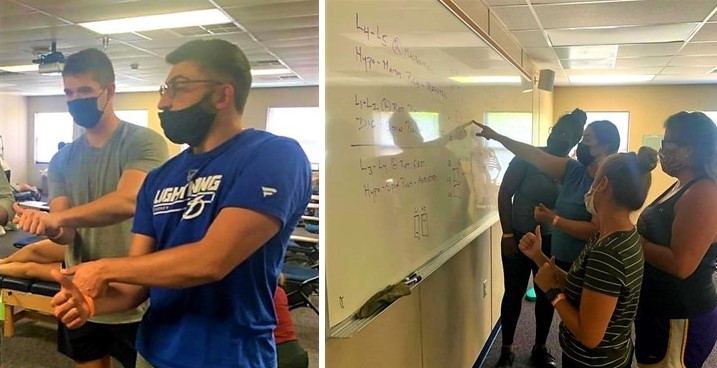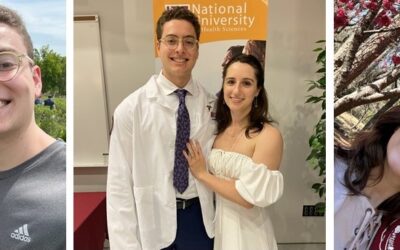We’re almost mid-way through this trimester and I’d like to dedicate this blog post to my classmates.
One of the first hacks I learned surviving this DC graduate program was to form study groups and work together with classmates. I have learned to reach out to others when I am struggling with concepts. It has made the stressful moments so much more manageable when you know others are there for you (or when you are all in the same boat confused)!

In our Manipulation class, we are learning resisted vs assisted manipulation. These are new concepts to grasp that entail understanding which vertebra is being contacted, knowing which side to lay the patient on the table, determining the shoulder and hip angles to set up the adjustment properly, and direction for the thrust. For example, if a patient has a resisted lumbar manipulation, the patient lies on the table on the side of the malposition. These adjustment techniques are clearly not taught in undergraduate courses, so this is most likely our first experience learning the concepts and working together to grasp the material has been crucial! Professors have taught us to use our hands as “vertebrae” (our thumbs act as the spinous processes) to better visualize vertebral movement and restrictions. This visualization then helps us better understand the manipulation technique necessary to correct the malposition.
I struggled quite a bit remembering which side to lay the patient on, so I reached out to the course tutor and met for an hour tutoring session. During that session, the concepts clicked. It was amazing–I highly recommend reaching out to tutors if you are struggling or stressing over specific subjects.
{{cta(’88d1f92c-eec6-45a6-ada7-5a0fa717195b’)}}




0 Comments